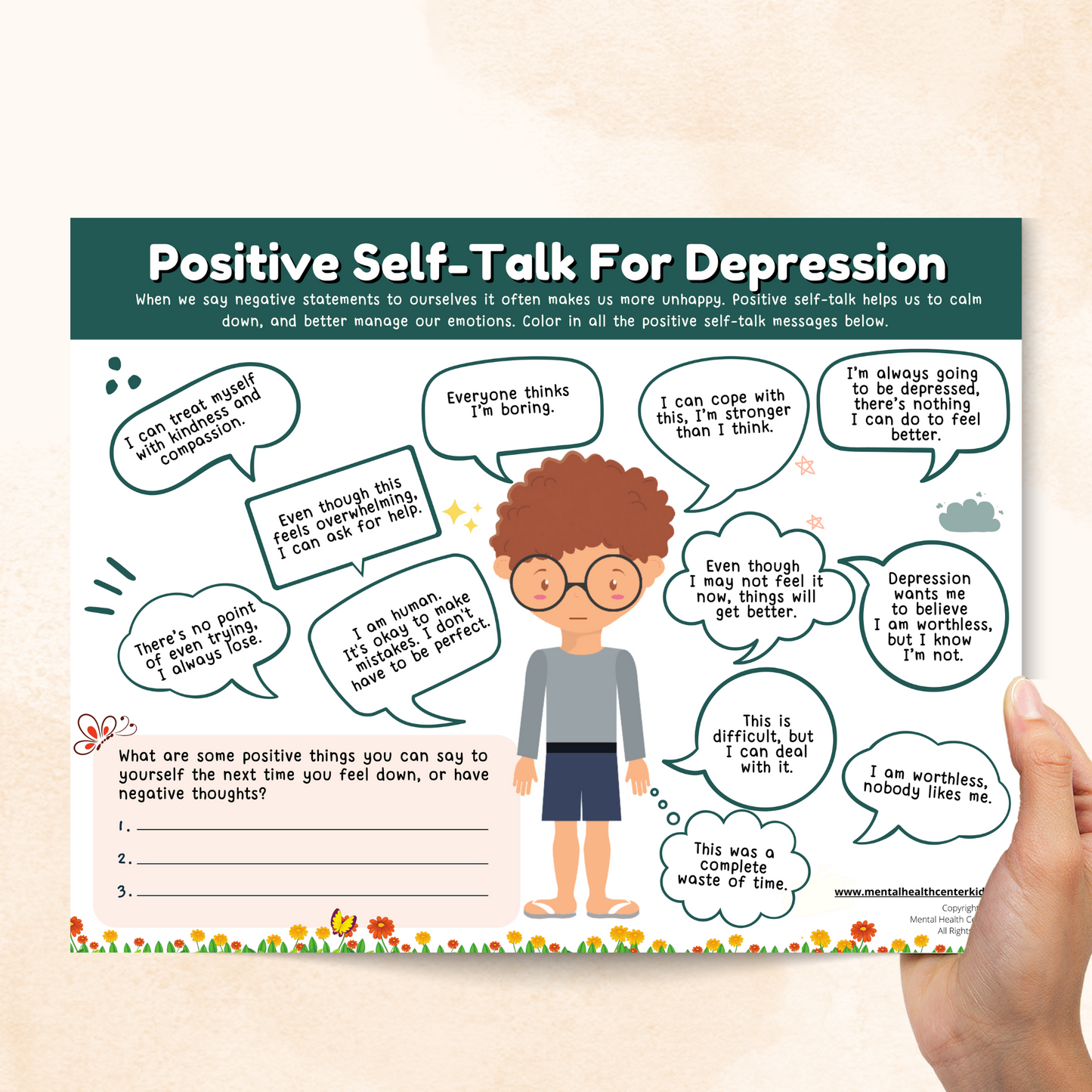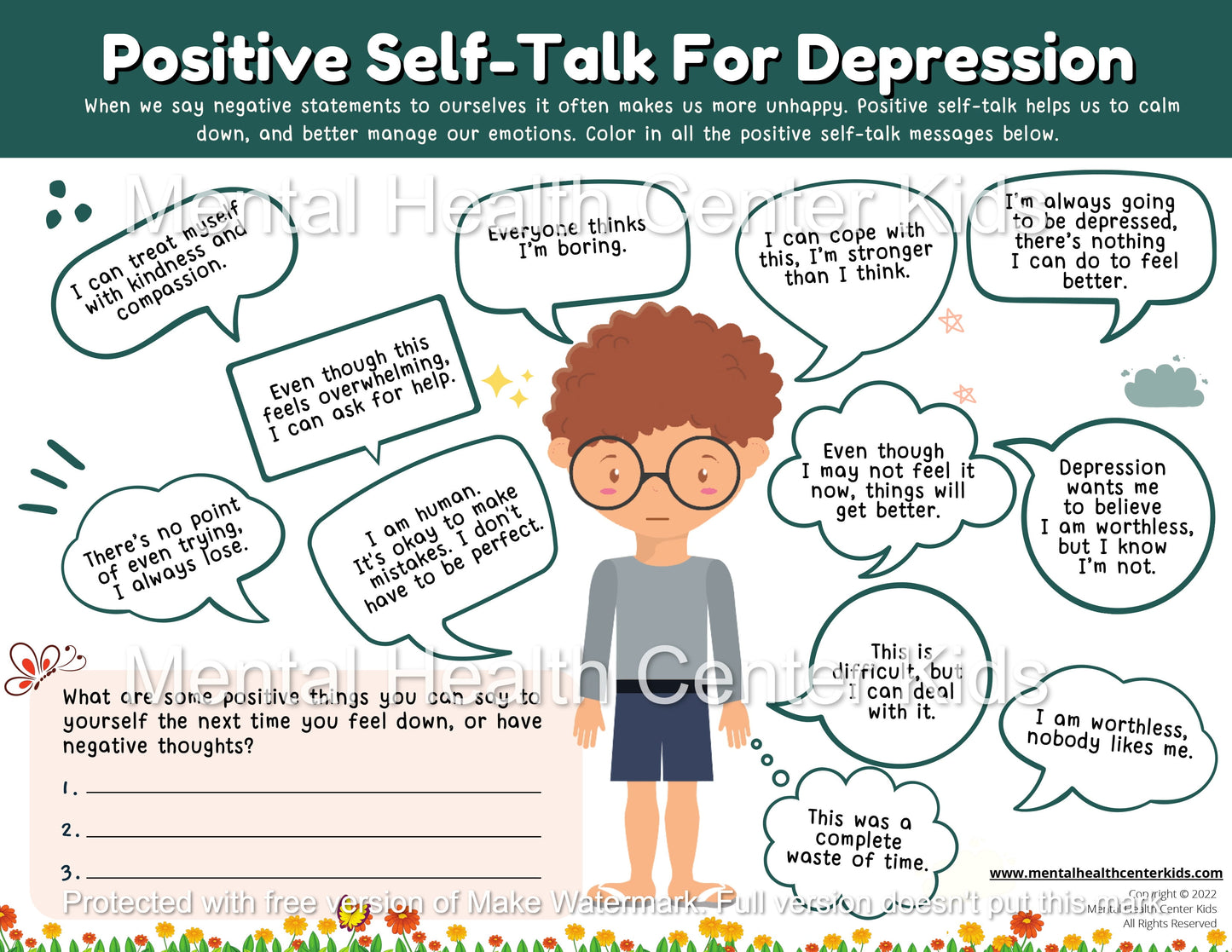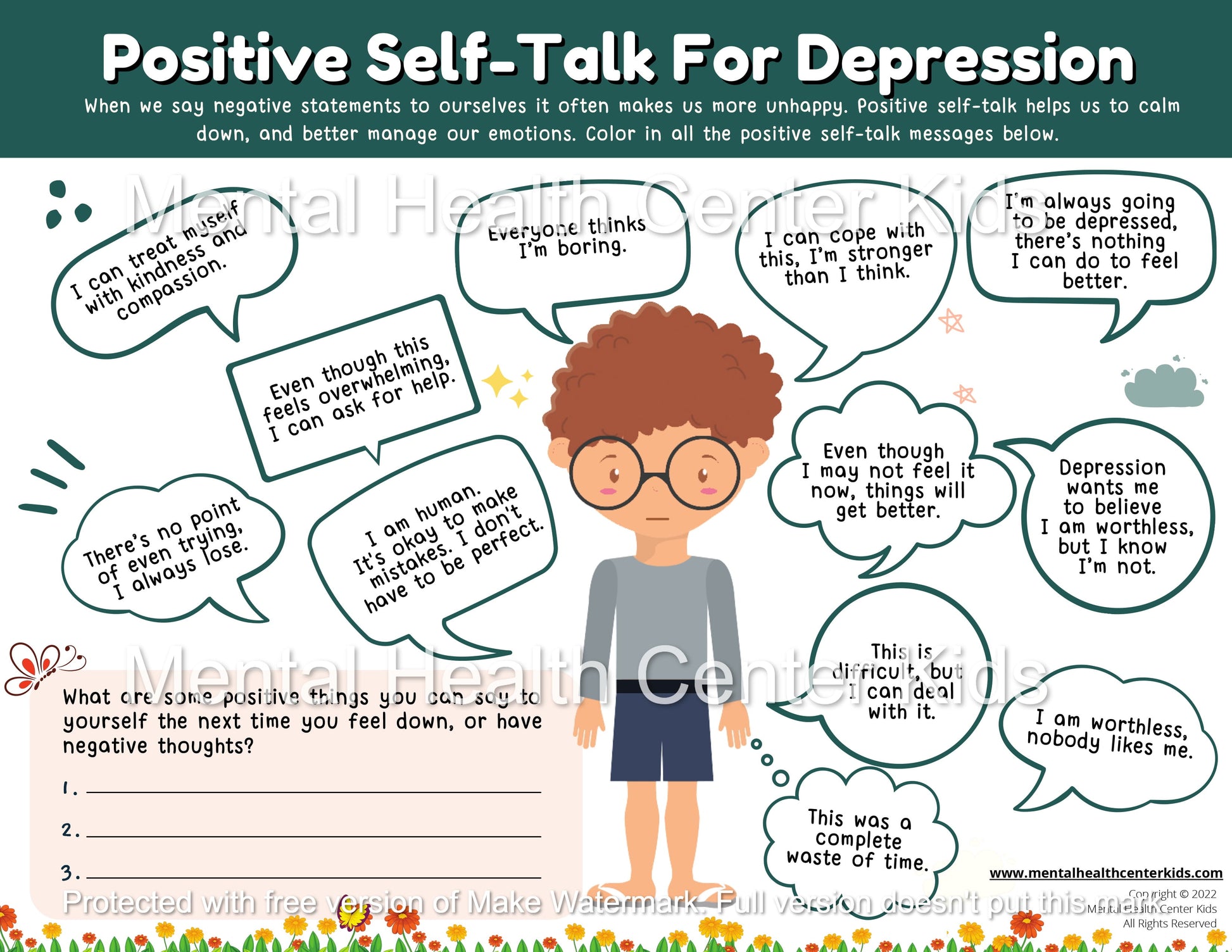Positive Self-Talk for Depression



Talking positively to oneself during periods of depression means thinking or saying words that boost one's mood and self-esteem. It involves replacing negative thoughts with positive ones. This practice is increasingly recognized for its benefits in managing mental health challenges.
The Positive Self-Talk for Depression worksheet gives clients the opportunity to become their own support system, especially during tough times, by identifying positive messages they can tell themselves whenever they feel alone. The worksheet also includes a section where they can write down three positive things to tell themselves to feel better when they are having a tough time.
Completing this worksheet helps children become kinder to themselves, more hopeful, and better able to overcome negative thoughts. They can also use it alongside the Depression Coping Statements (PDF) to manage their feelings more effectively and strengthen positive thinking.
Supportive adults can use positive self-talk themselves and show how it helps manage stress and stay optimistic. They can also encourage young people to display positive quotes in frequently seen places, such as mirrors, lockers, or study areas, to remind them of their strengths and abilities daily.
*This item is an instant digital download. A link to download your files will be emailed to you once payment is confirmed.
Want more resources like this? Check out our full catalog of depression worksheets and handouts.
References:
- Sabzipour, M., Mousavi, S., & Shahsavari, M. R. (2023). Effect of positive self-talk training on depression alleviation in students with suicidal ideation. International Journal of School Health, 10(2), 62-68. https://doi.org/10.30476/INTJSH.2023.98029.1289
- Thompson, K., D’iuso, D., Schwartzman, D., Dobson, K. S., & Drapeau, M. (2018). Changes in depressed patients’ self-statements. Psychotherapy Research, 30(2), 170-182. https://doi.org/10.1080/10503307.2018.1543976
- Treadwell, K. R., & Kendall, P. C. (1996). Self-talk in youth with anxiety disorders: States of mind, content specificity, and treatment outcome. Journal of Consulting and Clinical Psychology, 64(5), 941-950. https://doi.org/10.1037//0022-006x.64.5.941
- Wei, C., Cummings, C. M., Villabø, M. A., & Kendall, P. C. (2014). Parenting behaviors and anxious self-talk in youth and parents. Journal of Family Psychology, 28(3), 299-307. https://doi.org/10.1037/a0036703
- Instant digital download
- File: Fillable PDF
- Size: 8.5" x 11"
Frequently Asked Questions
Excellent resource with visual cues for conversation and reflection activities.




